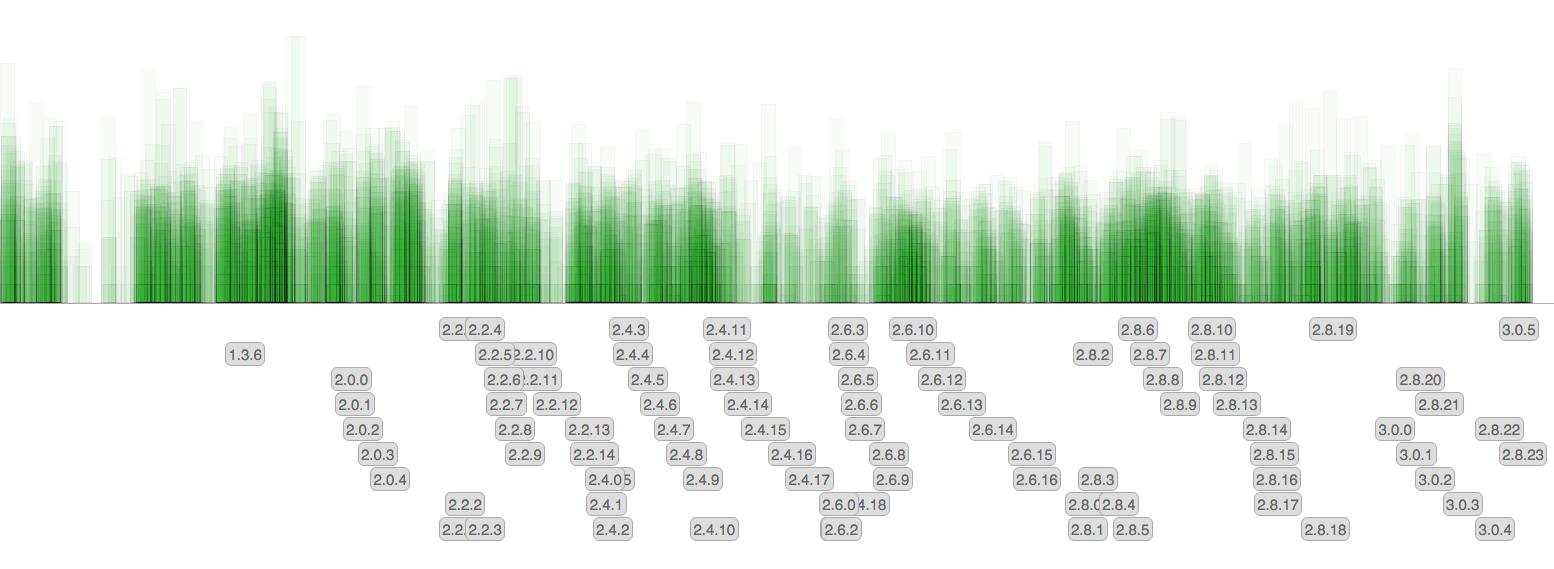Generating unique IDs: an easy and reliable way
▼Two days ago Mike Malone published an interesting post on Medium about the V8 implementation of Math.random(), and how weak is the quality of the PRNG used: http://bit.ly/1SPDraN. The post was one of the top news on Hacker News today. It’s pretty clear and informative from the point of view of how Math.random() is broken and how should be fixed, so I’ve nothing to add to the matter itself. But since the author discovered the weakness of the PRNG in the context of generating large probably-non-colliding IDs, I want to share with you an alternative that I used multiple times in the past, which is fast and extremely reliable.
 Each commit is a rectangle. The height is the number of affected lines (a logarithmic scale is used). The gray labels show release tags.
There are little surprises since the amount of commit remained pretty much the same over the time, however now that we no longer backport features back into 3.0 and future releases, the rate at which new patchlevel versions are released diminished.
Each commit is a rectangle. The height is the number of affected lines (a logarithmic scale is used). The gray labels show release tags.
There are little surprises since the amount of commit remained pretty much the same over the time, however now that we no longer backport features back into 3.0 and future releases, the rate at which new patchlevel versions are released diminished.